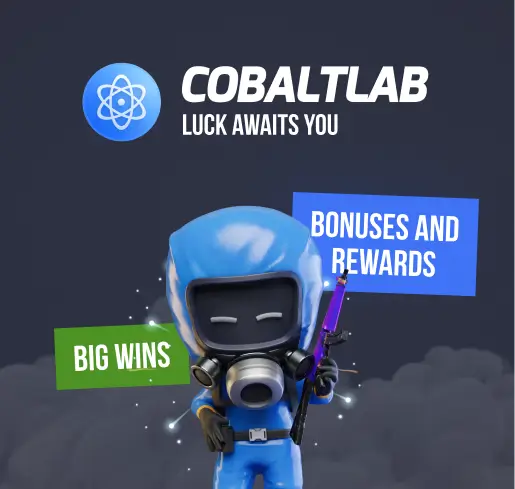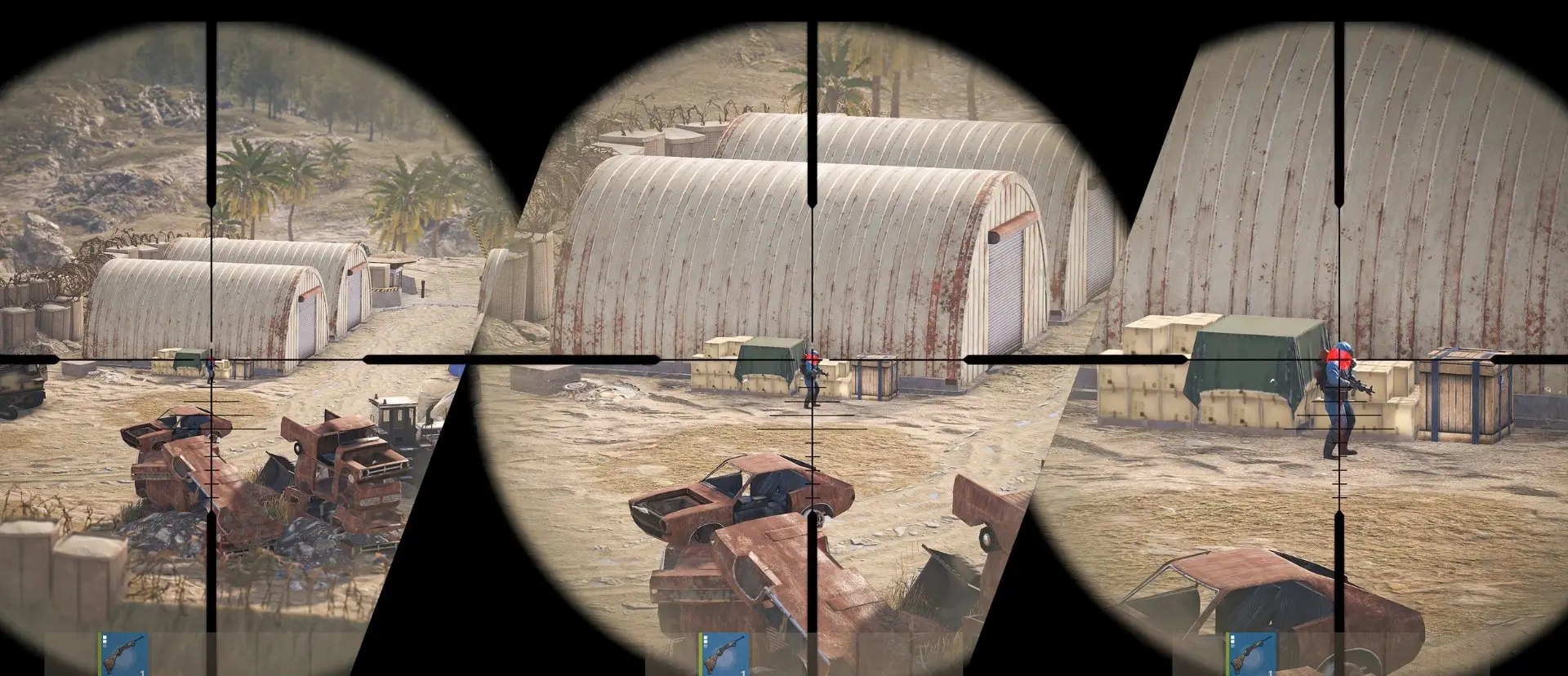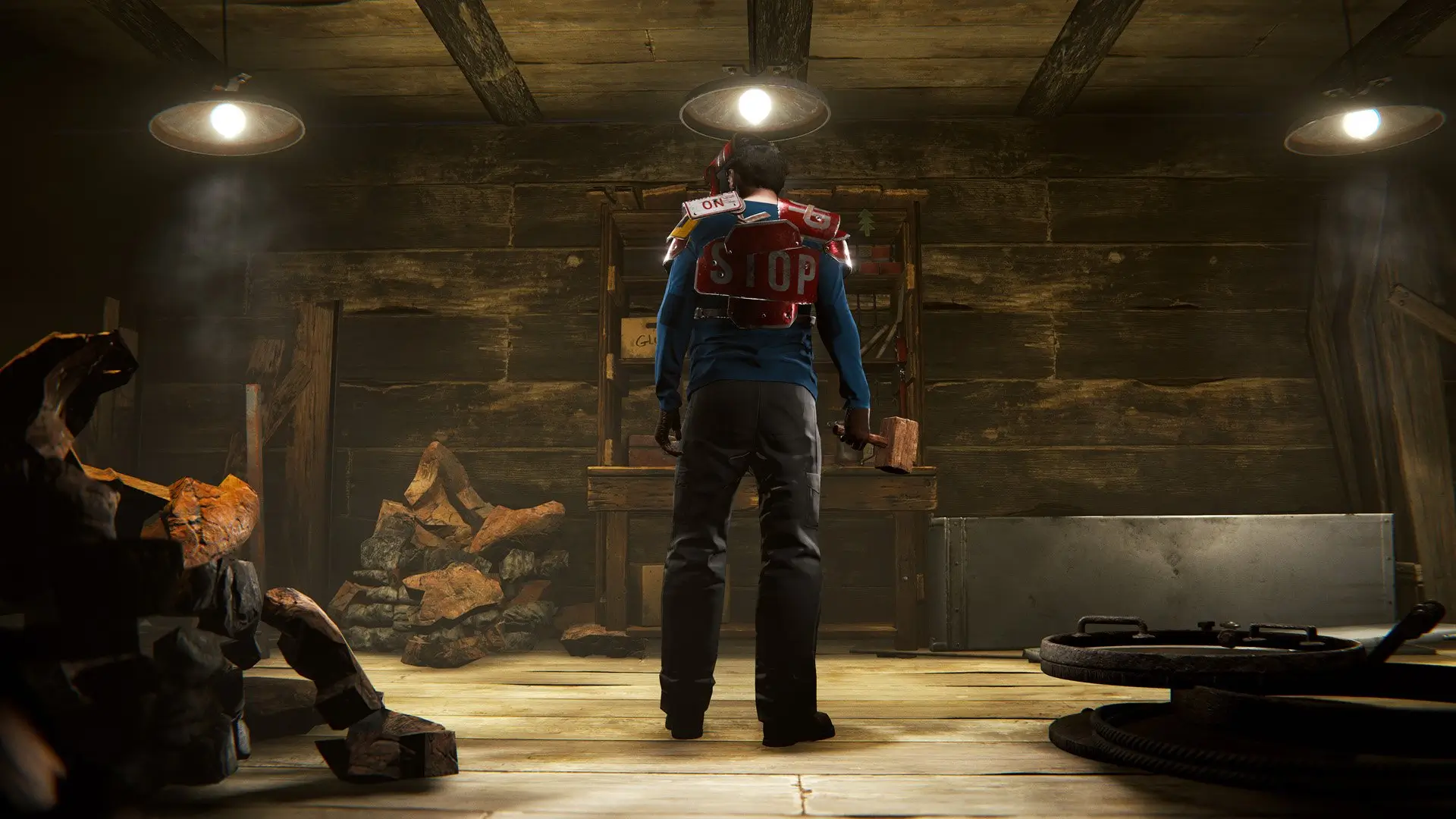The world of Rust private servers offers game modes with their own economies and unique items, different from the standard Steam Market. Most players are used to obtaining skins through the official marketplace, but on private servers, administrators implement custom systems: creating their own cases, in-game currencies, and shops. For example, a server protocol might reward players for activity, granting skins or currency in exchange for experience points.
In this article, we’ll take a look at some of the most popular servers of this kind and their economic models.
👉 If you’re curious about exploring unique economies and trying out new trading formats, start with Cobalt Lab. There you can open cases and test game mechanics without the risk of losing everything.
What Is a “Custom Economy” in Rust?
A custom economy is an in-game system created by server administrators for trading items and currency. It usually includes unique cases and loot crates with special drops, exclusive skins (sometimes even entirely new item models), as well as custom currencies and marketplaces.
Servers implement these mechanics to attract players and monetize their projects: unique content engages the audience, while paid cases or VIP rights generate revenue. For example, some servers advertise a “Custom Economy,” where players can exchange gathered loot for special points or coins and increase their rank.
In essence, it’s an alternative economy: alongside official skins, players encounter custom tokens and rewards for activity. Thanks to such systems, players gain a “collector’s experience,” gathering exclusive items that are unavailable in the base game.
Popular Custom Servers
Royal Rust (PvE 5X)
Royal Rust is a PvE server with 5x settings, offering a “balanced economy” and special cases. According to its description, the server runs a Custom Economy: players can sell gathered loot for in-game currency (RP) to increase their rank. The server also features a quest system and enhanced gear (EpicLoot). For supporters, a “balanced VIP” system is in place: donations don’t provide a direct combat advantage but instead offer cosmetic perks and faster progression.
Compared to the official economy, Royal Rust introduces unique weapon skins and merchandise created specifically for the server: these items cannot be sold on Steam but are highly valued within the community. For example, a rare rifle skin might be worth hundreds of RP on the server, even though it doesn’t exist at all on the official market.
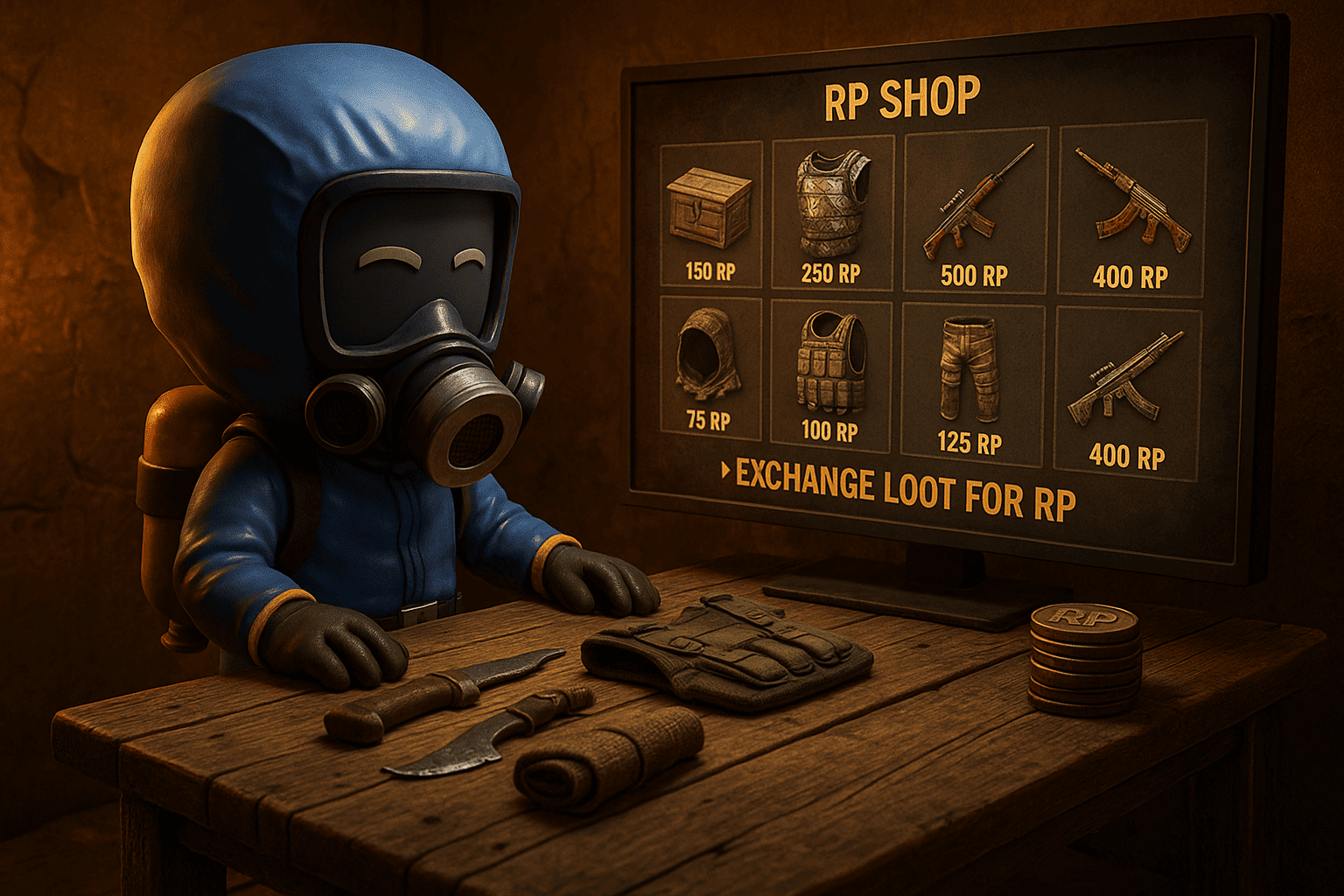
Corrosive Eagle (PvE/PvP 3X)
Corrosive Eagle is a hybrid server with 3x farming rates and PvP zones located at special monuments. In its mod list, “Economy” is explicitly mentioned — meaning it has a custom system of exchanges and rewards.
The server offers a variety of unique activities (base defense against AI, military convoys, zombie events, etc.), which reward players with in-game currency for success. Administrators also provide kits and donation packs containing exclusive items not found in official Rust. For example, Corrosive Eagle features its own decorative items (display mannequins, themed wallpapers, unique vehicles) that can’t be obtained in the base game.
As a result, the server’s internal currency and unique loot make its economy very different from the standard one: some skins here are worth only a small amount of RP, while collectible items can be extraordinarily expensive in player-to-player trades.
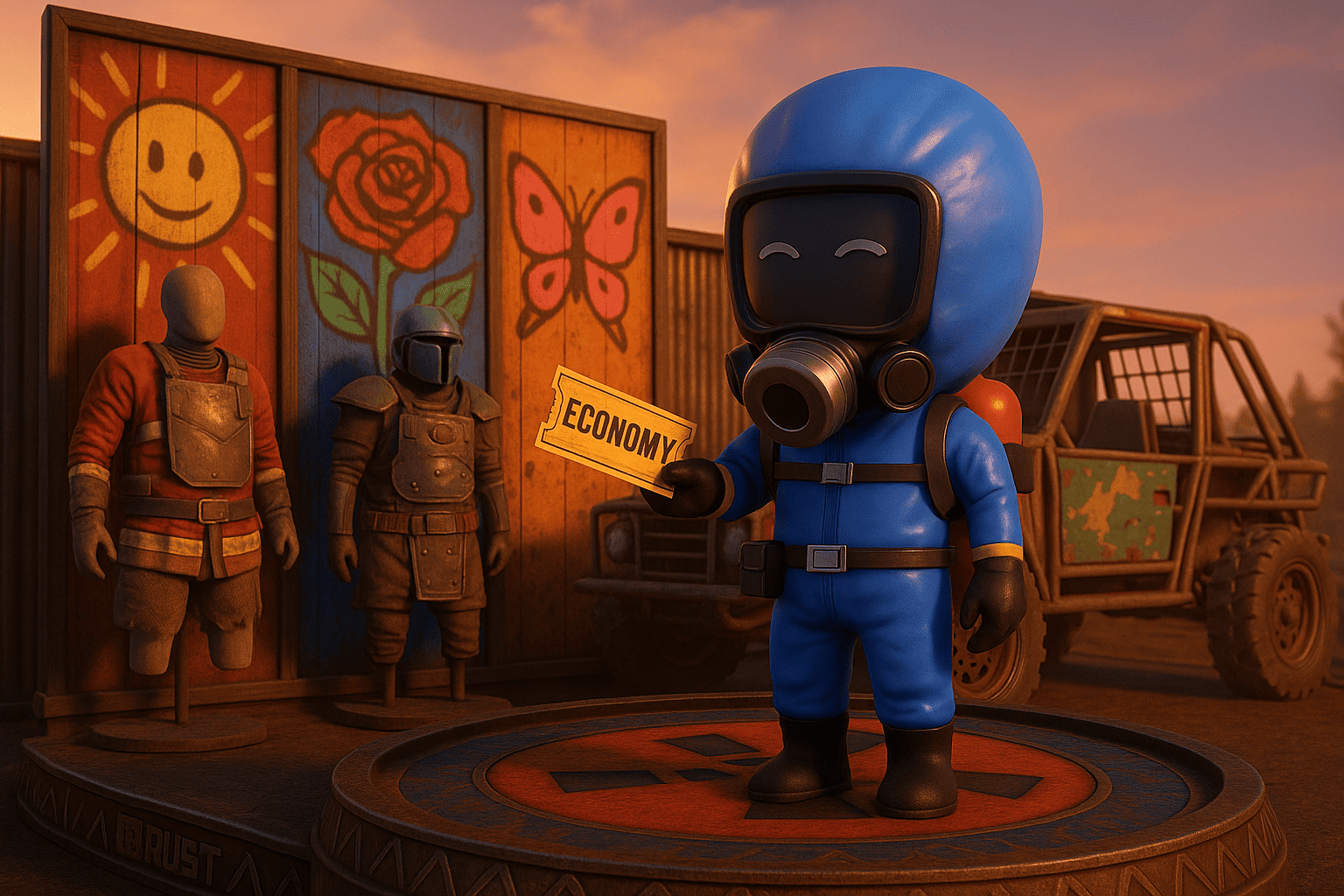
Blood Rust
Blood Rust is an example of a PvP server with a gamified economy. According to the community description, on Blood Rust every player action earns experience points (EXP), which can then be exchanged for skins. Upon reaching certain thresholds, reward raffles are also triggered.
In other words, there’s no direct use of real-world currency: rewards are tied to accumulated points. This approach ensures constant player activity — the more fighting, resource gathering, and building you do, the greater your chances of earning a valuable skin.
As a result, Blood Rust’s economy creates a marketplace of EXP-to-skin exchanges: rare skins can be “purchased” with large amounts of EXP, while more common ones cost fewer points. This model differs from the official market in that practically all items on the server are accessible through gameplay rather than real money.
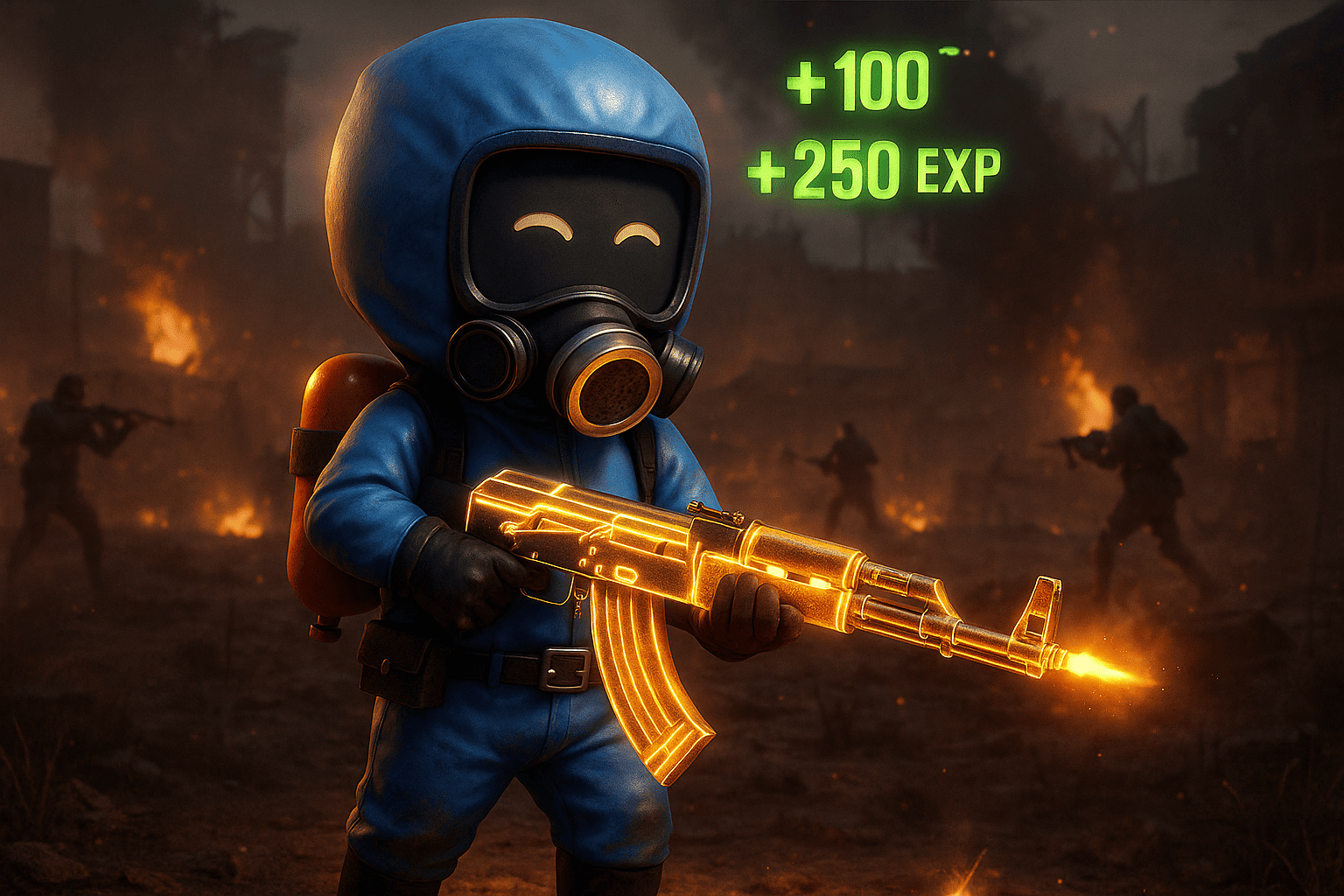
Rust Room
Rust Room is another interesting community example. Here, players are rewarded for activity with special “money tree seeds” (a virtual resource), which can be traded among players or exchanged for real money. According to the rules, 10 seeds are worth about 15 rubles, and collecting 50 seeds grants the right to enter a skin raffle (for example, one player once won an item valued at 700 rubles).
Thus, in Rust Room the internal currency is tied to real money, but all transactions occur within the server itself. This creates a sort of hybrid model: players appear to invest real money into “seeds,” but in return gain the chance to win rare skins. It demonstrates how, in a custom economy, almost any combination of “virtual gold” and real-world value is possible.
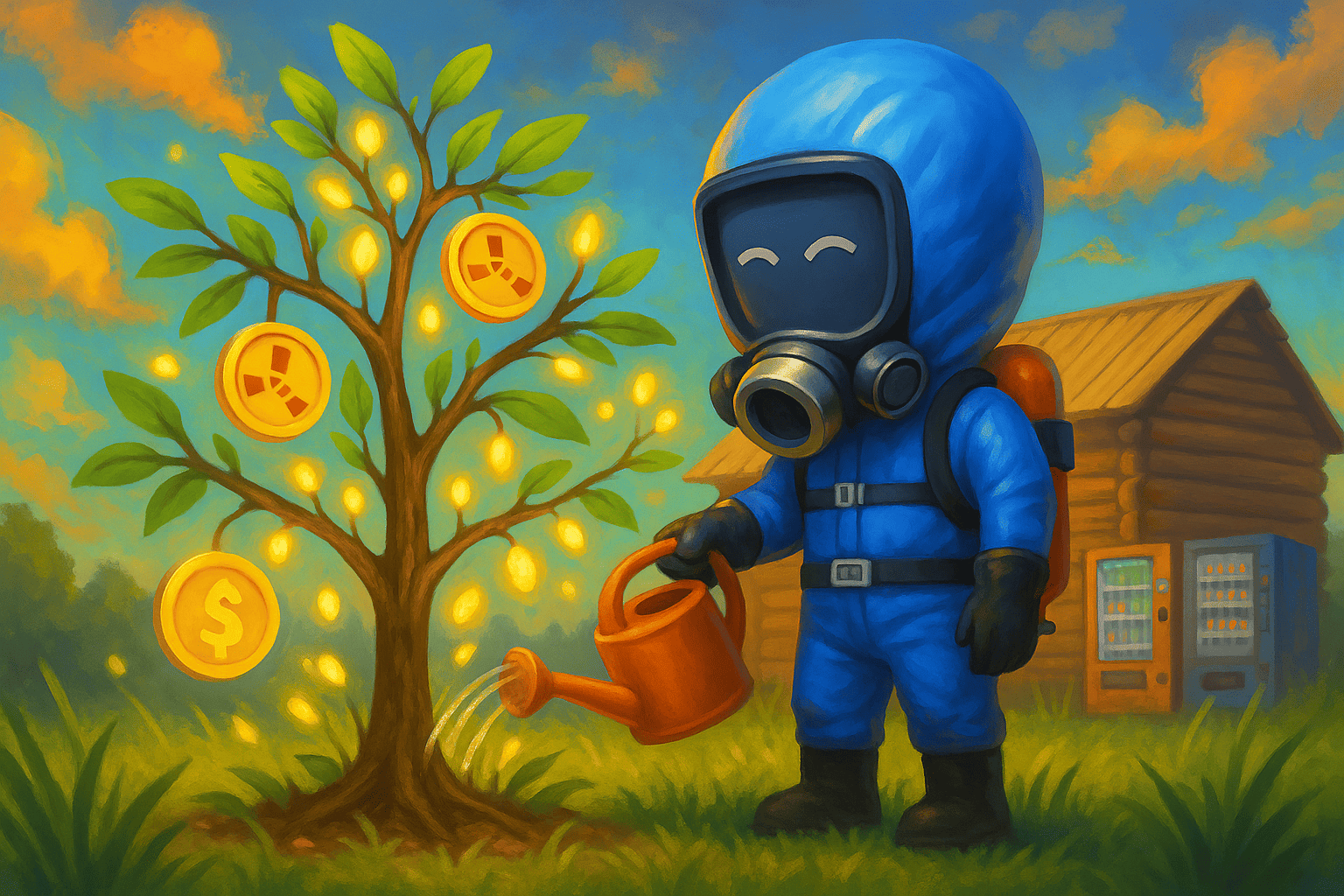
Advantages and Disadvantages of Custom Economies
Advantages
Custom servers provide a unique gameplay experience — collectors gain access to exclusive skins and events. Players support their favorite communities and can often earn in-game rewards simply by being active. Many appreciate the chance to stand out with rare items unavailable in the official store (for example, on Royal or Corrosive Eagle, such skins are only accessible through donations or server achievements).
Custom economies also allow for tournaments and raffles organized under “server rules,” creating extra engagement not found in classic Rust.
Disadvantages
However, there are clear risks. First, these economies are not backed by Facepunch — if the server shuts down, all virtual assets lose their value. As players warn: “such servers don’t last long if they lack active players.” Indeed, one-time perks may draw crowds, but keeping long-term interest is difficult.
Internal markets can also be easily manipulated: prices can be inflated or dumped (creating instability). For example, the admins of Blood Rust could announce a 100% discount at any time, collapsing the market monopoly.
Another downside is the lack of guarantees: officially acquired items and money are protected by Steam, while custom server assets can be scams or simply “disappear.” In other words, any investment in a custom economy is always at your own risk.
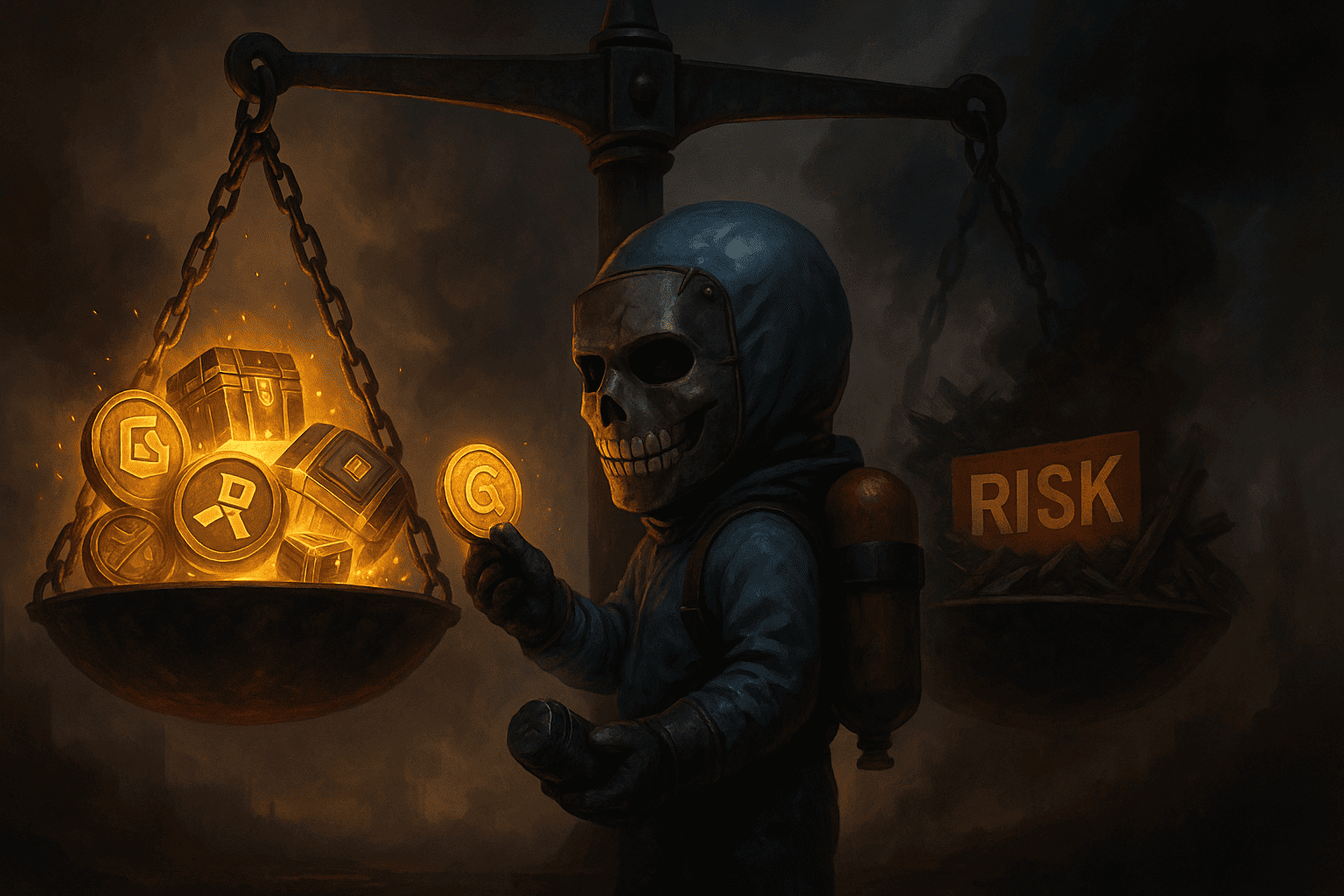
How to Find These Servers
You can discover interesting custom Rust servers through the built-in filters in the game launcher or via server listing websites (for example, Rust-servers.net or TopRust). When searching, it’s useful to look for tags like “Economy”, “Skins”, “Modded”, or “VIP.”
In addition, popular custom projects are usually promoted within the community — on forums, themed VK groups, and Discord servers. For instance, players recommend checking the Steam Community sections or messenger channels (such as the official channels of Rustilla, Paradise, Wolf, etc.), where admins announce new features (like custom cases, events, and donation shops).
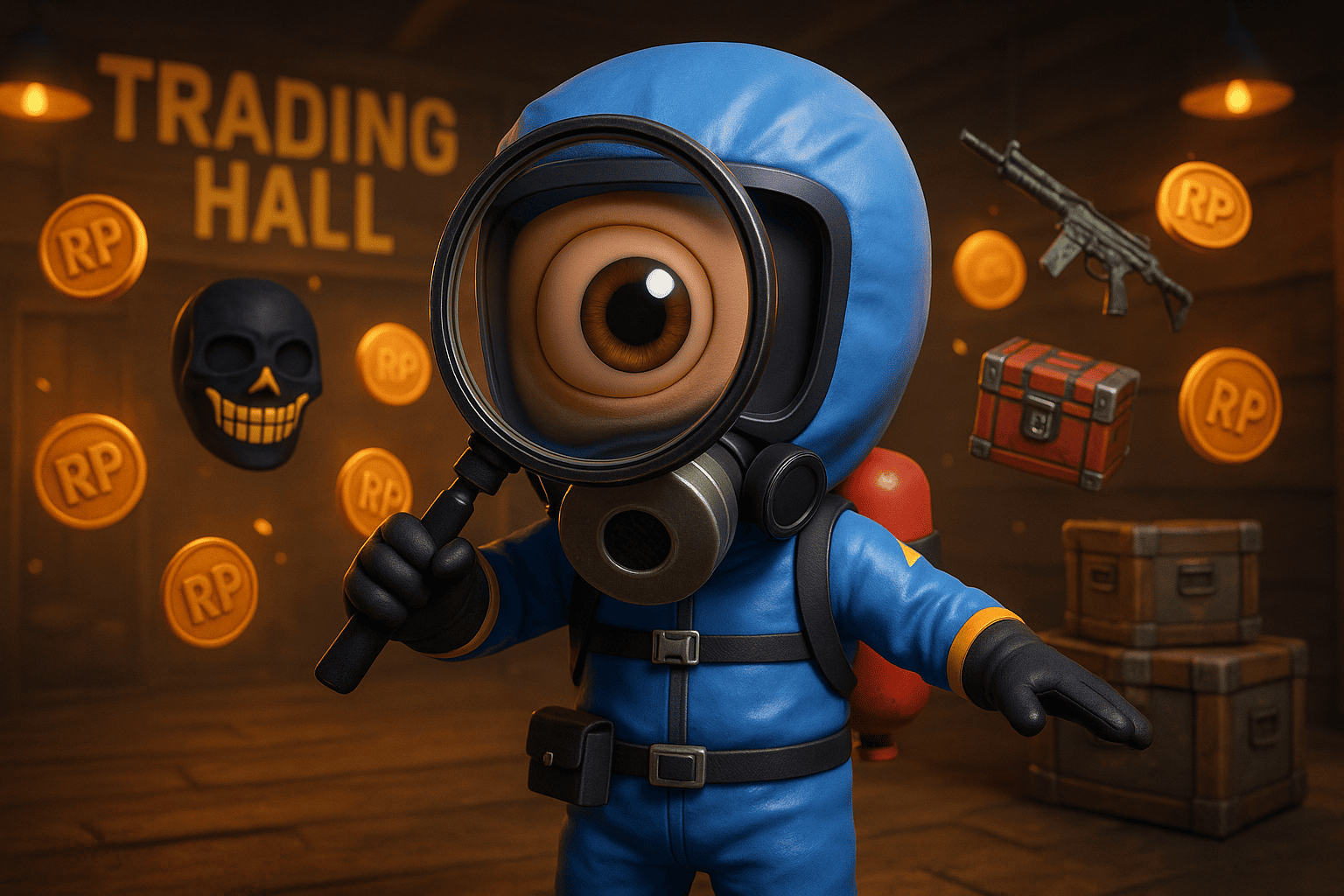
Summary
A custom economy is a separate branch of the Rust community that allows players to experience unconventional gameplay and obtain rare skins unavailable in the base game. Such servers may appeal to collectors and those seeking fresh experiences: winning unique items and engaging in in-game “trading” brings new dynamics.
On the other hand, before diving into a new economy, it’s worth considering the project’s longevity. As one community member noted, many promising “classic” servers (“that pay for every hour played and raffle off skins”) eventually shut down once their player base disappears.
In any case, custom economies continue to evolve: they give the community new goals and allow server creators to experiment with mechanics.
🎮 If you want to build a collection that won’t vanish along with a server, try Cobalt Lab. There you’ll find cases and bonuses — and skins that retain their value.
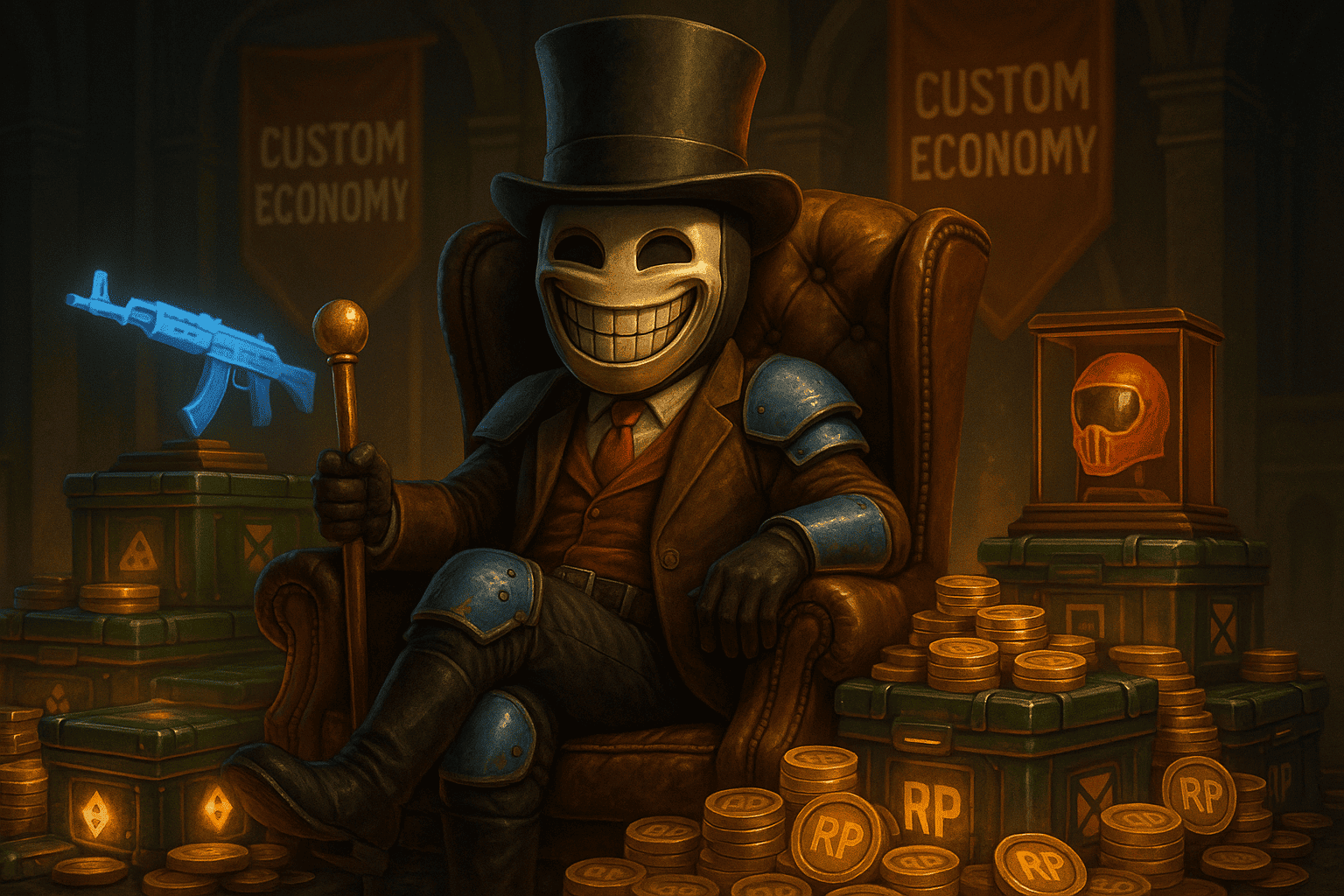
💡It will be interesting as well:
